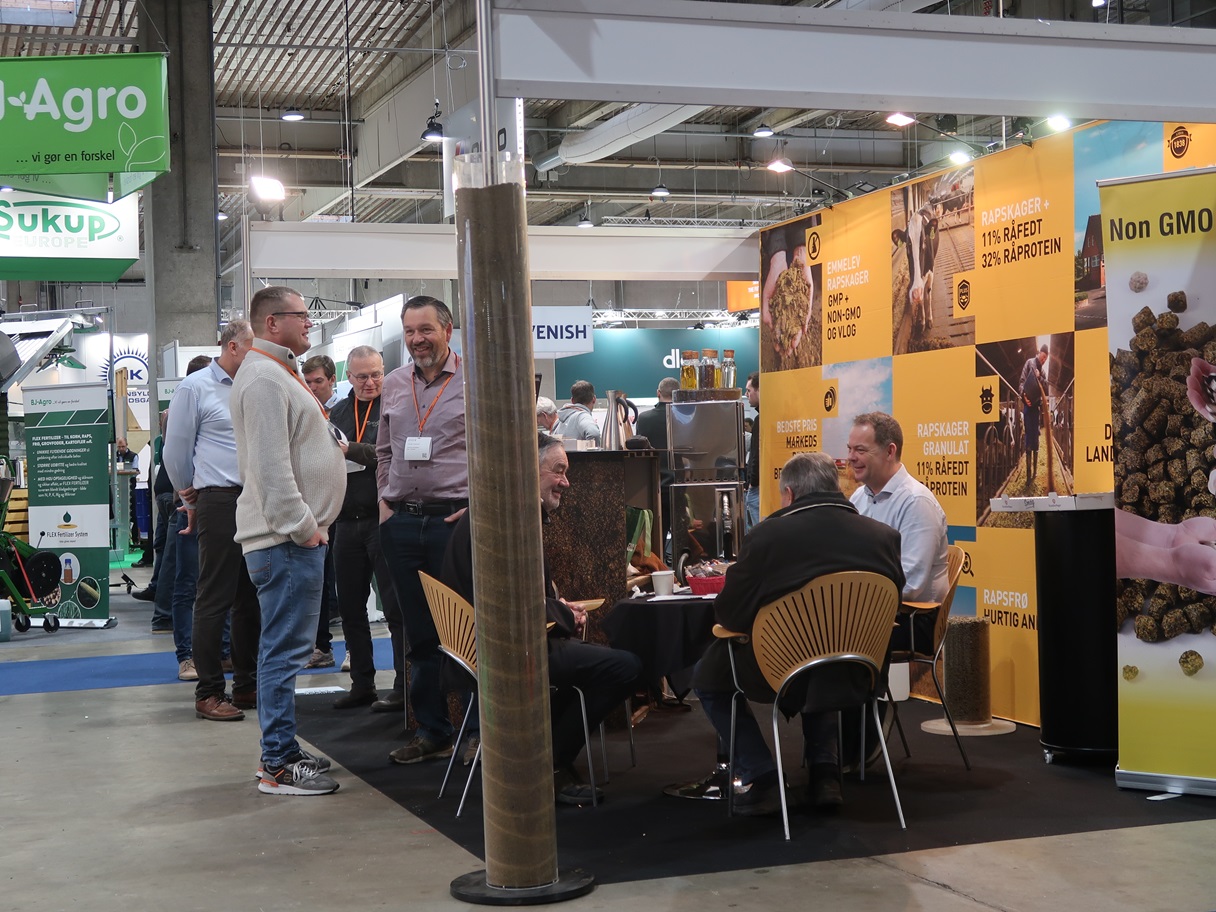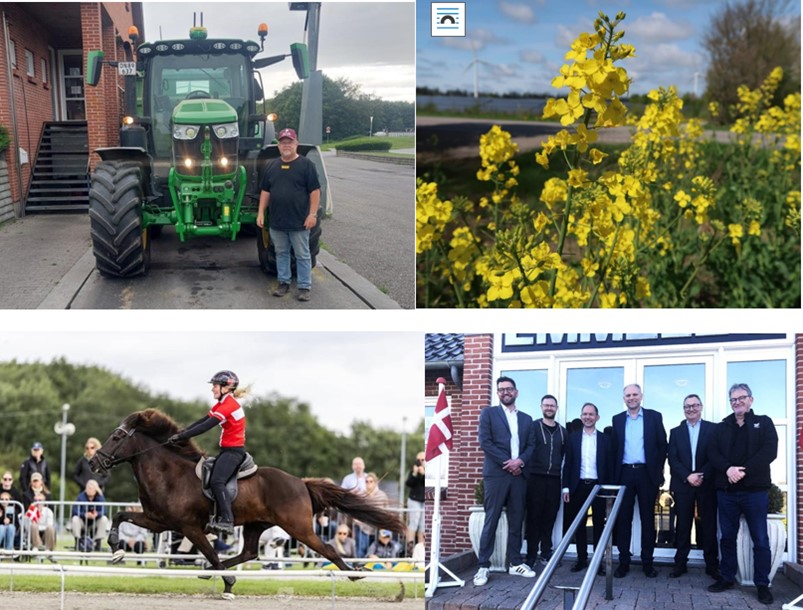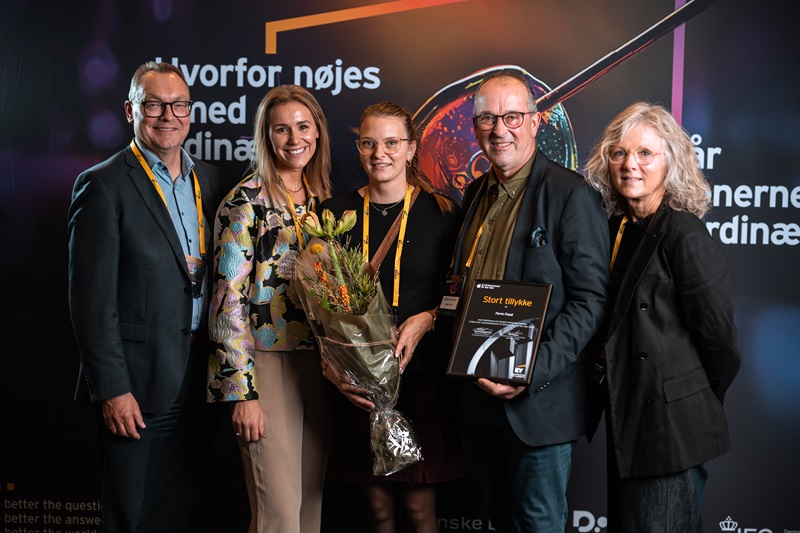Thus, the rapeseed can be used not only for biodiesel, animal feed and the extraction of a number of other products. Now Ferm Food can use it also human food.
The foodingredient company Ferm Food, which nordfynske Emmelev bought last year a 25 percent stake, is now allowed to sell fermented, Danish rapeseed cake for food after an approval in the EU has fallen into place.
This arouses great enthusiasm in the trade association for Danish grain and feed, Dakofo:
- We areworld champions in producing rapeseed in Denmark. Therefore, the EU's expansion of the existing authorisation is a huge advantage for Danish rapeseed production and for Danish plant proteins for food, says Emil Dalsgaard Hansen,CEO of Dakofo in a press release from Ferm Food.
At Emmelev A/S, Sales Manager Henrik Madsen is very pleased with the decision. He has been involved in the work to get an approval.
Emmelev A/Si s known for producing biodiesel from rapeseed from Danish fields, but in fact a number of other raw materials are extracted from the rapeseed, including rapeseed cakes, which have so far only been used as protein-rich feed for the animals in agriculture.
Now, via the company Ferm Food, the rapeseed cakes can also be developed into protein-rich raw materials for use in the food industry.
Ferm Food,which specialises in producing fermented ingredients for food producers, has applied for an extension of the EU's permitted specifications for rapeseed cake, and this week the new rules came into force.
Therapeseed cake contains 28-30 percent protein and is thus a good source of protein for food. However, the rapeseed cake has one drawback. In its raw version, rapeseed contains glucosinolates, which are a substance that protects the plant from pests, bacteria and mold. The glucosinolates give the seed its bitter taste, and have made the rapeseed cake difficult to use in food.
But millions of beneficial lactic acid bacteria and solid-state fermentation have solved this challenge. When the rapeseed cake is fermented with lactic acidbacteria, a biological process begins in which new beneficial degradations ubstances are produced and unwanted substances, including the bitter taste, are broken down.
Therefore, Ferm Foods' fermented rapeseed cake can be used in many different foods such asbread, cakes, pâté, sausages and plant-based foods.
This is done, among other things, at Vadehavsbageriet in V. Vested near Ribe:
- With fermented rapeseed cake in the bread, we can increase the protein level, improve the amino acid profile and at the same time extend the shelf life of the bread naturally. In the development department, we are working on even more products with this fantastic raw material, says owner Jytte Kruse.
According to Ferm Foods, 2025 will be the year when rapeseed will be in even more foods.
- We have customers who have been waiting for the EU's authorization so that they can start developing new clean-label and protein-rich products. So I am convinced that consumers will be able to buy even more foods with fermented rapeseed cakeduring 2025, says Søren Lange, Development Manager at Ferm Food.
In order to get a food approved by the EU's food safety authority, EFSA, the applicant must conduct clinical trials that easily amount to several million kroner and take years.
Previously,a Finnish applicant had his processed version of rapeseed cake approved, but the authorization was so narrow that it could only be used for the producer's own Finnish raw materials and thus not for Danish or other EU rapeseed cake.
Facts about rapeseed cake
Rapeseed isone of the most common and protein-rich crops grown in Denmark .
In 2022, 894,000 tonnes of rapeseed were produced in Denmark. This corresponds to approximately 447,000 tonnes of rapeseed cake.
Therapeseed cake contains 28-30 percent protein.
In the EU, 19.8 million tonnes of rapeseed are produced per year.
Canola is the second largest protein crop in the world after soy.
Facts aboutrape seed cake
Rapeseed is one of the most common and protein-rich crops grown in Denmark.
In 2022, 894,000 tonnes of rapeseed were produced in Denmark, corresponding to approximately 447,000 tonnes
tonnes of rapeseed cake or 75 kilos of rapeseed cake per Dane per year.
Therapeseed cake contains as much as 28-30% protein.
Rapeseed isnot only an interesting crop in Denmark, but also in the rest of the EU, where 19.8 million tonnes are produced annually. Rapeseed is the 2nd largest proteincrop in the world after soy.
Facts about Novel Food:
The European Commission's Novel Food Regulation lays down rules that food that is not
used forhuman consumption in the EU before 15 May 1997, shall not be may beplaced on the market without an EU authorisation.
The NovelFood rules mean that, among other things, rapeseed cakes may not be used infood,
unless theyare authorised, and only in the quantities indicated and only in specific
Categories.
Novel Food applications are administered in Denmark by the Danish Veterinary and Food Administration and in the EU by the
European Food Safety Agency, EFSA.





